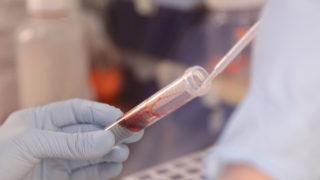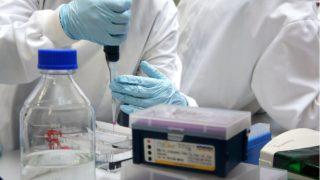Category: Publications
Search News
Categories
Archives
Blood test for prostate cancer
17th September 2019
A new and simple blood test has been found to efficiently and accurately detect the presence of aggressive prostate cancer, in a study led by BCI’s Professor Yong-Jie Lu.
Read moreBRCA testing for higher risk group
13th September 2019
Researchers are calling for population-wide BRCA testing in the Jewish community after finding it to be more effective than current approaches, cost effective and to have a high satisfaction rate with those undergoing testing.
Read moreAntibody therapy in pancreatic cancer
31st July 2019
Scientists have found a way to target and knock out a single protein that they have discovered is widely involved in pancreatic cancer cell growth, survival and invasion. Called avb6, the protein is present on the surface of more than 80 per cent of pancreatic ductal adenocarcinoma – the most common form of pancreatic cancer – and is vital to increase the successful growth and spread of the tumour cells.
Read moreAR alterations in prostate cancer
16th May 2019
Recent findings from a study published in JAMA Oncology have identified genetic markers within blood samples which may indicate whether patients with prostate cancer will respond to hormonal therapies. The study may represent an important step forward for the development of more personalised treatments for advanced prostate cancer.
Read moreEliminating cancer stem cells
25th April 2019
Research published today in Cell Stem Cell has discovered a protein which drives an aggressive form of blood cancer, acute myeloid leukaemia (AML). Inactivation of this protein selectively compromises leukaemic cells while promoting normal blood cell functions.
Read moreTherapy for high-grade glioma
2nd April 2019
A phase I clinical trial that set out to assess the safety of a new combination therapy for a type of aggressive brain tumour has found the treatment to be well tolerated in patients. The trial used a treatment combination of ADI-PEG20, pemetrexed and cisplatin, which showed encouraging efficacy in patients with recurrent high-grade gliomas (HGGs), a disease for which little progress has been made over the last few decades.
Read more




